- Home
- Kelley Armstrong
Alone in the Wild Page 7
Alone in the Wild Read online
Page 7
The sudden wail of a baby sounds in the distance. We look at each other.
“Not that,” I say.
“Definitely not that.”
We dissolve into tipsy giggles. Then I say, “Gotta admit, you looked damn good holding a baby. It suited you.”
His head tilts, and I know he’s catching the note in my voice. A wistful one that says this isn’t a hint that I want a child, but maybe a hint that I’m suddenly feeling the loss of that possibility.
“I might look good in a Speedo bathing suit, too,” he says. “Doesn’t mean I should have one.”
I giggle, making me glad he’s the only one here. It’s definitely not a homicide-detective-worthy sound.
Dalton continues. “Now, if you said you wanted me in a Speedo, I’d get one in a heartbeat. I’m not opposed to them. Just not sure it’d suit me. Not sure it wouldn’t suit me either. The truth is that I’ve never given it much thought one way or another. I could wear one if you wanted me to. Now. Later. Or I could go my entire life without ever wearing one, and that’d be fine, too. Which is exactly how I feel about a baby.”
He adjusts me on his lap. “I said the same thing the first time you mentioned the issue, and that hasn’t changed. I don’t have strong feelings either way. I know you probably can’t have a baby. We could try and see what happens. Or we can decide that’s too stressful and find a way to adopt. Or we can say we’re fine like this, you and me. This ball is one hundred percent in your court, Casey. I’m good with whatever you want.”
“And if that changes? If you realize you want—or don’t want—kids? Would you tell me?”
“Absolutely,” he says, and kisses me.
TEN
We tumble into the house, having consumed about half our cider on the way. Hey, we wouldn’t want it getting cold.
The door isn’t even shut yet before we’re kissing. Dalton doesn’t lock it. He never does. That’s a show of trust … and also a warning. Just try breaking into his house.
Storm knows what’s coming and retreats to the kitchen. Dalton scoops me up and carries me into the living room, where the fire burns low. I have him undressed before we reach the bearskin carpet. I may make a few comments about how good he’d look in a Speedo. Totally true. He has a swimmer’s lean muscled body, and I thoroughly admire it while he stokes the fire.
We aren’t in any hurry. We can’t leave for the First Settlement until close to dawn, so we take our time in the firelight. Afterward, he’s lying on his back on the rug, and I’m stretched out on top of him, tracing my finger through a sheen of sweat on his chest.
“Definitely getting you a Speedo for Christmas,” I say.
He chuckles. “Good luck with that in Dawson. Not much call for them there. Not much use for one either, at this time of year.”
“I’ll stoke the fire so you can wear it indoors.”
He’s about to reply when someone bangs at the door. It’s loud and insistent enough that we can’t just be quiet and wait for them to go away. Dalton starts reaching for his jeans. Then he stops, muttering, “Fuck it,” and grabs a blanket from the pile. He swoops it out, letting it fall over us, and then calls “Come in!” as he adjusts the blanket to cover everything it should cover.
The door opens. Footsteps sound. Then the howl of a baby, followed by Jen’s voice. “Yeah, I’d scream, too, kid. No one wants to see that. You guys do have a bed upstairs, don’t you?”
“The fact we’re not dressing to answer the door suggests we’re expecting this to be a short visit,” Dalton says.
“Oh, it will be. I’m just dropping off your kid. Hope you were done, because this is going to put a damper on things.” She holds out the baby, who obliges with a howl.
“What’s wrong with her?” I say, sliding off Dalton, blanket to my chest.
“Huh. I don’t know. Maybe … the screaming? She won’t settle. She’s fed. Changed. Ready for bed and furious. She’s making it very clear that Auntie Jen isn’t who she wants.”
“Well, I don’t think she’s looking for us, either. She wants her parents.”
“Close enough.” She holds the baby out again.
I motion for her to turn around, and she says, “Neither of you has anything I haven’t seen before but fine.”
Once she’s turned, I yank on my undershirt and panties, and Dalton pulls on his jeans. Then I take the baby, who peers at me, head swaying as if trying to focus. Her lower lip trembles. When she lets out a cry, it’s not the howl from before, but she’s clearly gearing up for it. I pass her to Dalton.
“Me?” he says. “She doesn’t want—”
I move his hands, so the baby is pressed against his chest, as she was on the way to Rockton. She fusses for a moment and then settles against him.
“I think she likes you,” Jen says.
“It’s my smell,” he says. “I carried her back to town.”
“Whew. ’Cause otherwise, that kid is already developing a shitty taste in men.” She pats the baby’s back. “Wait until you’re a teenager for that.”
Jen off-loads a pack from her back. “All the supplies.”
“Whoa, wait,” I say. “We need to leave first thing in the morning, which means we need a good night’s sleep.”
“Didn’t look like you were sleeping when I got here.”
“Actually, we were just about to.”
“And now you can. She’ll drift off, for a while at least. Either you take her or no one in town gets to sleep tonight. My neighbors were already trooping over, accusing me of beating the poor thing. She’s in a strange place, and she’s scared, and the people she knows best are you two.”
“Fine, but come by at nine and pick her up.”
“Take her with you.”
“Uh, no. We’re heading into the winter forest in search of her family.”
“Exactly why she should go along. As for the ‘winter forest,’ she was born there. You guys brought her back, bundled up and happy. She’s a month old. That’s all she wants. Food. Warmth. Security. Pack her into Eric’s parka again and off you go.”
“We’re taking the snowmobiles.”
“Even better. You know how to get a kid to sleep down south? Take her for a car ride. The vibration and the steady noise are kiddie Ambien.”
When I open my mouth to protest, she says, “I’m not trying to get out of looking after your kid, Casey. I have my monthly janitorial shift tomorrow. I would gladly—ecstatically—give that up to babysit. But she’s already separated from her family, and you guys rescued her, and her tiny brain may not know much, but it knows she’s safe with you. If you do find her parents, what are you going to do? Say ‘Wait right here and we’ll bring her tomorrow’? Her parents must be going nuts. They’ll follow you back. Depending on who they are, that might not be safe for Rockton.”
I look at Dalton. She’s right, in all of it.
“Fine,” Dalton says. “Just stay and help us set her up for bed. Tell us what we need to do. Feeding schedule, whatever.”
She agrees, and we set up a fur-lined box for the baby in our bedroom as Storm snuffles her.
“The pup has to stay downstairs,” Jen says. “As friendly as she is, this is a very tiny kiddo.”
“I know,” I say. “‘Oh, look, they’re cuddling’ can become ‘Why is the baby turning blue?’ in a heartbeat.”
Jen snorts a laugh. “Exactly. Also, you need a temporary name for her.”
“We—”
She lifts a hand. “I’ve done that for you, too. It’s Abby.”
My gaze shunts to Dalton, who has gone still, and anger surges in me.
“That’s not—” I begin, but Jen’s already leaving.
When she’s gone, I turn to Dalton. “We don’t need to call her that. We don’t need to call her anything.”
He tucks the baby in, quiet as the front door closes behind Jen. Then he says, his voice low, “No, Abby is fine,” and he pulls a thin blanket up and touches the baby’s face before going to se
ttle Storm downstairs.
* * *
The baby wakes twice for feeding and once for a soiled diaper and once just because, apparently, she’s had enough sleep. By five we give up and start breakfast.
Dalton has not yet referred to her as “Abby,” and I won’t until he does. While Sebastian is young at nineteen, he isn’t the youngest person to come to Rockton. That would be Abbygail. An eighteen-year-old street kid with a history of drug use and sex-trade work, she’d escaped to Rockton and turned her life around, only to be brutally murdered in the case that brought me here. By the time I arrived, she was missing, presumed dead. Everyone still held out hope until that was shattered with the discovery that her death had been even worse than “lost in the woods, succumbed to the environment.” It was the human environment here that killed her.
In suggesting we call the baby Abby, I fear Jen wasn’t honoring the memory of the much-loved girl. At worst, it was incredibly cruel, even for Jen, and I’d hope she would never stoop that low.
To Dalton, the death of Abbygail is his greatest failure as a sheriff. She went from hating the sight of him to idolizing him, first as a mentor and then as more. That last part was the problem. When she kissed him after her twenty-first birthday party, he rejected her, horrified. She fled Rockton and died in the forest. Or so it seemed. But her killers had exploited her crush and sent her a note, apparently from Dalton, telling her to meet him in the forest to talk. She went, and she never came back.
Jen had been the one to tell me about the kiss. She made it sound as if Dalton took advantage of Abbygail’s hero worship. When I learned the truth, I’d confronted her, and she’d shrugged it off, as if she’d known all along and just been stirring up trouble.
So what was Jen’s intention calling the baby Abby? Acknowledging that he’d done all he could for the young woman and that her loss haunted him still? Or rubbing his face in his failure? I hope it’s the former, but all that matters now is Dalton’s reaction, and the fact that he’s even considering it gives me hope. It tells me maybe he’s ready to honor Abbygail’s memory instead of running from it.
Before we leave, we stop at Phil’s. He’s spoken to the council. They have nothing to say about the baby. They don’t recognize the description of the dead woman, though I’m not sure how hard they’d try. On that count, all they’re saying is that, while I am free to investigate her death as a way to reunite the child with her family, please remember that I am Rockton law enforcement, and the key word in that phrase is “Rockton.” The death of a settler, while tragic, falls outside my purview.
“I told them that your responsibilities here have been light leading into the holidays,” Phil says. “Also, such an investigation helps hone your skills and foster better relations with our neighbors.”
Unless I accuse one of them of murder.
I don’t say that. I know Phil is trying for a head pat by defending me, and I give him one, figuratively at least. Then we’re off.
Dalton and I share a snowmobile, leaving the other in case Anders needs it. We take turns driving, the other sitting on the back with the baby bundled in their parka. Jen was right that the baby would sleep most of the time. We stop for feedings and changes and cuddles, because the last seems to complete the trifecta of awake-baby needs. When we can’t figure out why she’s fussing, we bounce her and talk to her and dance her on our knees. That seems to do the trick.
We can’t take the snowmobile all the way to the First Settlement. The trails leading into it aren’t wide enough, intentionally. Rockton has horses, ATVs, and snowmobiles. The settlements have none of these, and so for them, wide paths only increase the chance that outsiders will find them … or that folks from Rockton will mistake it for a rolled-out welcome mat. So we hide the sled off the path and cover it with a tarp and snow. Then we head in on foot.
Rockton began as a refuge for the persecuted, no criminals permitted. That ideology lasted as long as the accounting books balanced. With each major shift in priorities, a group would leave. The First Settlement was founded in the sixties. Fifty years have passed since, and they’re on the third generation, with only two original Rockton residents left, including the town leader, Edwin. As the original settlers die out, their town’s connection with ours fades.
The relationship has never been friendly, but it has always been one of mutual disinterest. Live and let live. Dalton fears that will change when Edwin is gone. The younger settlers see Rockton as weak and wealthy. We have those horses and snowmobiles and ATVs, and we are soft, living in relative luxury. We’ve already seen signs of trouble.
While Edwin lives, we are trying to build bridges. While we might be a handful of shepherds protecting a fat flock, we have all the guns we need to repel an attack … and soak the ground with their blood. We don’t want that, so we work on building that bridge while making sure the younger settlers see what they are up against.
The problem is that Edwin is an aging lion, well aware of the hungry eyes on his throne. This is not a time he can show weakness by getting chummy with Rockton—the king of the jungle conversing with the gazelle. He must instead play the sly fox who always gets the better end of any deal.
The subtle tug-of-war exhausts Dalton. Our sheriff has no fear of usurpation and no patience for politicking. His personal history with the First Settlement doesn’t help. He remembers the men who eyed his mother and talked about her like that new resident spoke about me last night, as if she were a potential trade good. When the male settlers give me the same looks, it doesn’t foster good relations. I’m less bothered by it than he is, as I suspect his mother was less bothered than his father. Women expect this. It doesn’t mean we tolerate it, but it is a fact of our lives.
As we approach the settlement, Dalton hears someone outside it and hails them with a “Hello!” We know better than to sneak up—or give anyone an excuse to say we snuck up. It’s one of the men, second generation, maybe in his early forties. He’s hauling wood on a toboggan, and when he sees us, he nods and then keeps going, letting us follow him to the village.
I don’t try to talk to the man. I’ve learned my lesson in this. What seems common courtesy is seen as timidity, as if I’m making nervous conversation.
When the man doesn’t speak, we don’t either, not until we’re entering the village and Dalton says, “We’d like to talk to Edwin.” The man nods and keeps walking, and we stop there, on the edge of the village.
ELEVEN
The First Settlement is also the largest. It’s still a quarter the size of Rockton, with fifteen cabins. On my first visit, I’d counted ten, but there were five more deeper in, like a suburb to the main village. Even the central cabins are sparsely spaced. Protection isn’t really an issue out here, and it helps to have that extra room for gardens and privacy.
As we’re waiting, a shriek sounds, deep in the village. Dalton’s head jerks up, his eyes following the sound. A moment later, a door opens and a man appears, dragging a child by the arm.
“You want to play outside?” the man booms. “Fine. Go to the woodpile and start hauling logs. Come back in when that”—he points at the small heap beside their cabin—“is as tall as you.”
The boy is no more than six. He wails his protest, but the door slams shut. My arms instinctively close around the baby under my parka. Dalton strides forward, and I jog after him, torn between not wanting to cause trouble and seeing the child, shivering and sniveling, barely dressed for the cold.
Dalton crouches beside the boy, who sits in the snow, softly crying. Dalton pulls off his hat and puts it on the boy’s head. Then he wraps his scarf around the child and whispers something to him. The boy nods and rises, pointing. Dalton strides off, the boy tagging along behind. They disappear behind trees, only to return a moment later, their arms stacked with wood.
Dalton may have no head for politics, but I give him too little credit if I expected him to go after the boy’s father, all fire and fury. This is the boy’s life. Crying in the snow wil
l not help. Nor will having strangers fix his problems. I watch Dalton haul logs with the boy, and I cradle the baby under my parka and I think, more than I want to, about things I’d rather not.
Another door opens, and Edwin calls to me. As I walk over, the old man’s gaze shunts to Dalton helping the boy. He says nothing. He just ushers me inside and shuts the door behind me.
The cabin is blazing hot, the fire roaring. I unzip my parka and remove the baby from the makeshift papoose.
“You’d better not tell me that’s yours,” Edwin says. “Or time is passing even faster than I feared.”
“I found her in the snow.”
His brows rise into his hairline, and he looks at me, as if trying to tell whether I’ve misused a word. We’re speaking in Mandarin. Mine is about the equivalent of a five-year-old’s, so it wouldn’t be the first time I misspoke. I’d much rather use English, but I know to indulge Edwin in this. My Chinese blood elevates me in his eyes. He’s an old man, proud of his heritage, dismissive of those who don’t share it.
Edwin settles onto his chair. He isn’t large, and age has made him smaller still. He’s healthy, though, and his mind is fully functional. He’s a former lawyer, which makes this old fox particularly crafty … though that might be my own prejudice as a cop.
“Found her in the snow?” he says finally.
I nod.
“Well, she isn’t ours,” he says. “No one here has had a child in five years. Nor do we want her, if that’s what you’re asking.”
“It isn’t.”
I hope I don’t look relieved when he says she isn’t theirs. I keep thinking of that boy and his father, and I do not want her to be a child of this settlement. That’s unfair, I know. As I said, it’s a harsh life, and there is no room for soft parenting. Still, my hands clutch the baby a little tighter.
A rap sounds at the door.
“Come in, Eric,” Edwin calls in English. When Dalton enters, he says, “Done playing with Jamie?”

 The Calling
The Calling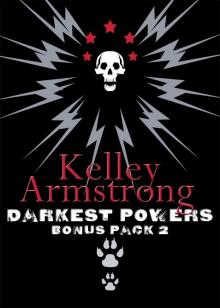 Darkest Powers Bonus Pack
Darkest Powers Bonus Pack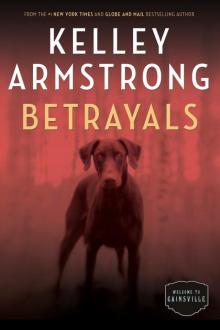 Betrayals
Betrayals Sea of Shadows
Sea of Shadows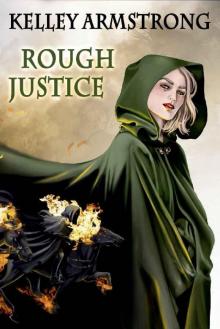 Rough Justice
Rough Justice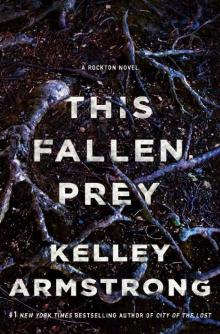 This Fallen Prey
This Fallen Prey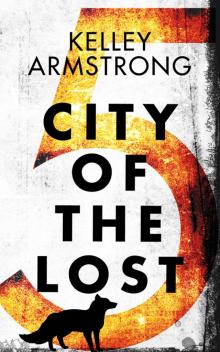 City of the Lost: Part Five
City of the Lost: Part Five Perfect Victim
Perfect Victim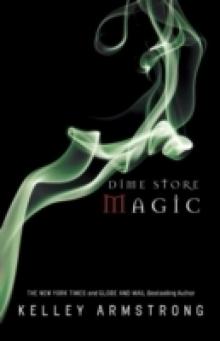 Dime Store Magic
Dime Store Magic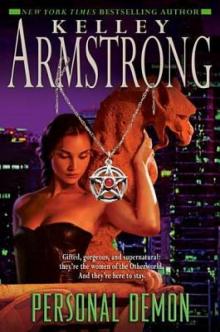 Personal Demon
Personal Demon Haunted
Haunted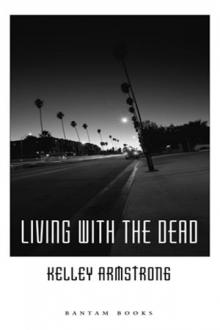 Living With the Dead
Living With the Dead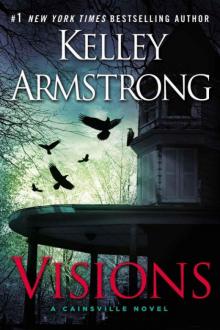 Visions
Visions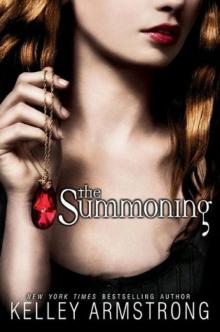 The Summoning
The Summoning Broken
Broken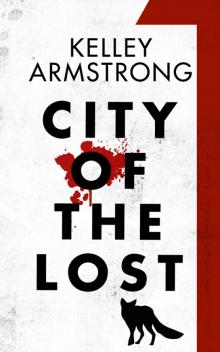 City of the Lost: Part One
City of the Lost: Part One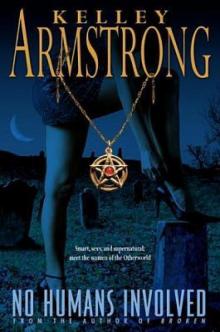 No Humans Involved
No Humans Involved The Awakening
The Awakening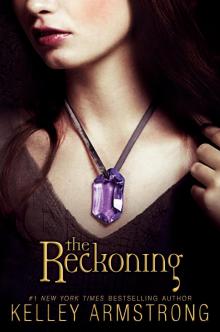 The Reckoning
The Reckoning The Gathering
The Gathering Bitten
Bitten Thirteen
Thirteen Gifted
Gifted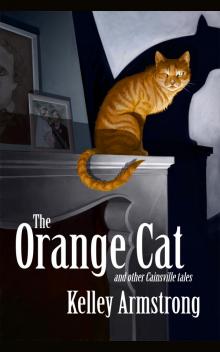 The Orange Cat and Other Cainsville Tales
The Orange Cat and Other Cainsville Tales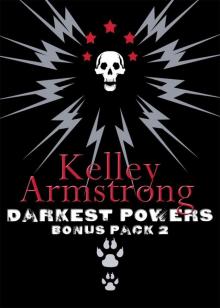 Darkest Powers Bonus Pack 2
Darkest Powers Bonus Pack 2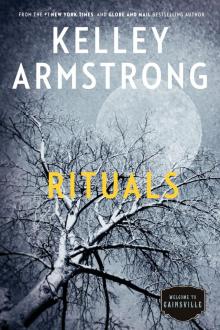 Rituals
Rituals Waking the Witch
Waking the Witch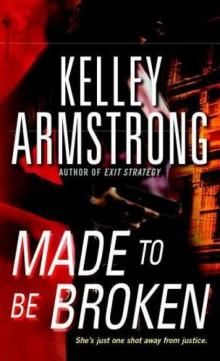 Made to Be Broken
Made to Be Broken Lost Souls
Lost Souls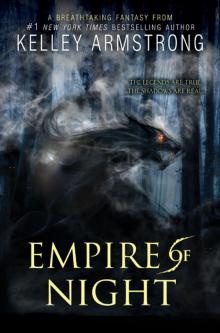 Empire of Night
Empire of Night Wild Justice
Wild Justice Double Play
Double Play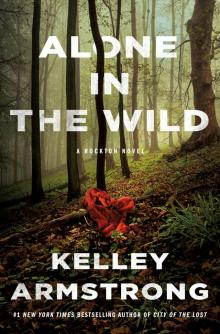 Alone in the Wild
Alone in the Wild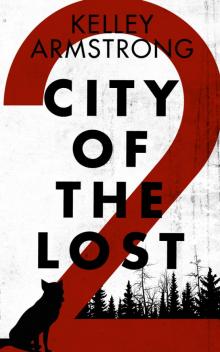 City of the Lost: Part Two
City of the Lost: Part Two A Stranger in Town
A Stranger in Town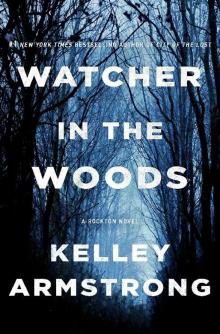 Watcher in the Woods: A Rockton Novel
Watcher in the Woods: A Rockton Novel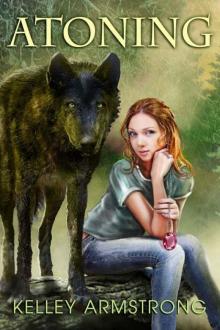 Atoning
Atoning Spellbound
Spellbound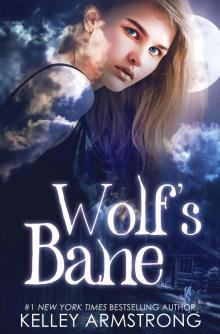 Wolf's Bane
Wolf's Bane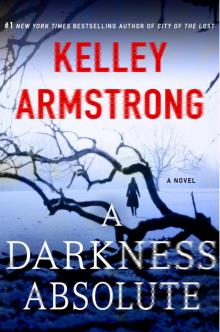 A Darkness Absolute
A Darkness Absolute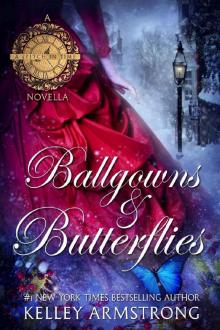 Ballgowns & Butterflies: A Stitch in Time Holiday Novella
Ballgowns & Butterflies: A Stitch in Time Holiday Novella Wherever She Goes
Wherever She Goes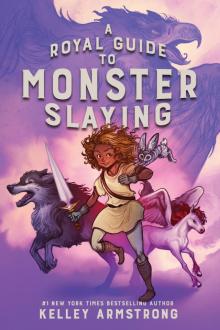 A Royal Guide to Monster Slaying
A Royal Guide to Monster Slaying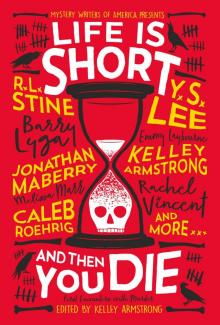 Life Is Short and Then You Die
Life Is Short and Then You Die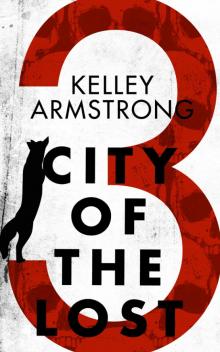 City of the Lost: Part Three
City of the Lost: Part Three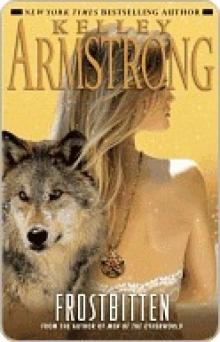 Frostbitten
Frostbitten A Stitch in Time
A Stitch in Time Industrial Magic
Industrial Magic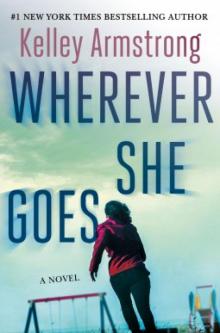 Wherever She Goes (ARC)
Wherever She Goes (ARC)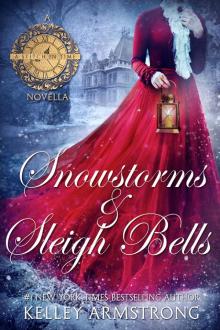 Snowstorms & Sleigh Bells: A Stitch in Time holiday novella
Snowstorms & Sleigh Bells: A Stitch in Time holiday novella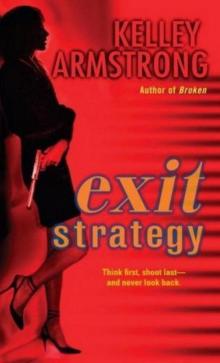 Exit Strategy
Exit Strategy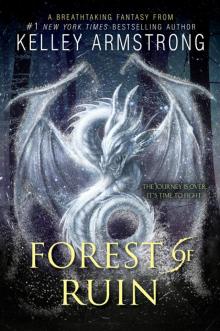 Forest of Ruin
Forest of Ruin Cursed Luck, Book 1
Cursed Luck, Book 1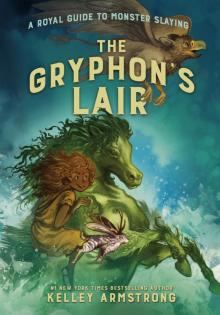 The Gryphon's Lair
The Gryphon's Lair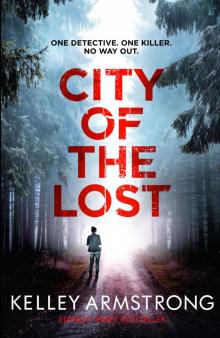 City of the Lost
City of the Lost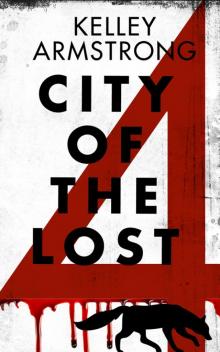 City of the Lost: Part Four
City of the Lost: Part Four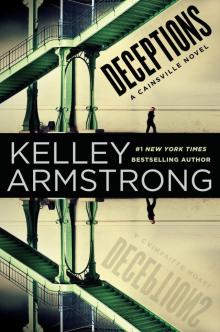 Deceptions
Deceptions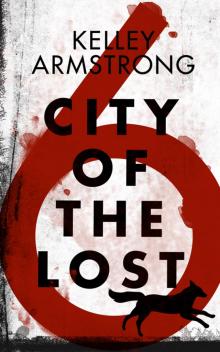 City of the Lost: Part Six
City of the Lost: Part Six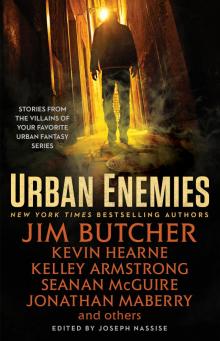 Urban Enemies
Urban Enemies Stolen
Stolen Every Step She Takes
Every Step She Takes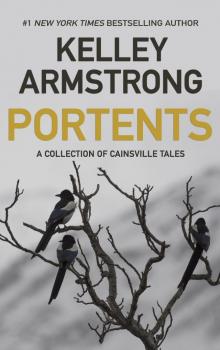 Portents
Portents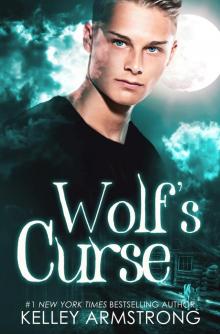 Wolf's Curse
Wolf's Curse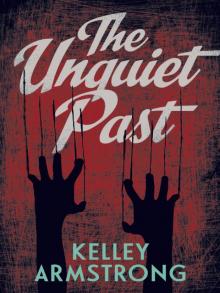 The Unquiet past
The Unquiet past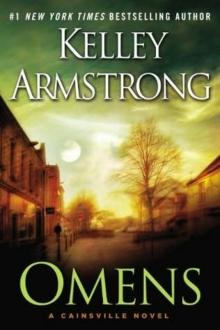 Omens ct-1
Omens ct-1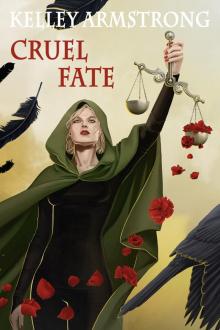 Cruel Fate
Cruel Fate The Calling dr-2
The Calling dr-2 The Awakening dp-2
The Awakening dp-2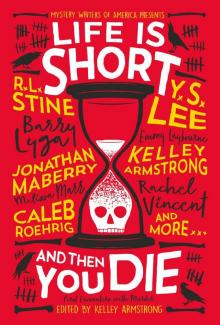 Life Is Short and Then You Die_First Encounters With Murder From Mystery Writers of America
Life Is Short and Then You Die_First Encounters With Murder From Mystery Writers of America Goddess of Summer Love: a Cursed Luck novella
Goddess of Summer Love: a Cursed Luck novella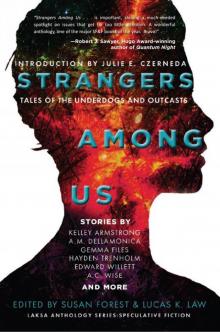 Strangers Among Us
Strangers Among Us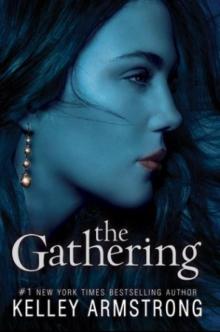 The Gathering dr-1
The Gathering dr-1 The Rising dr-3
The Rising dr-3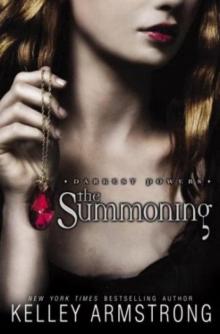 The Summoning dp-1
The Summoning dp-1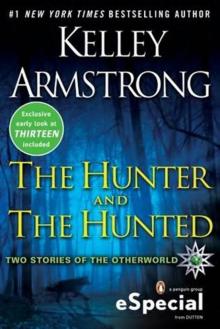 The Hunter And The Hunted
The Hunter And The Hunted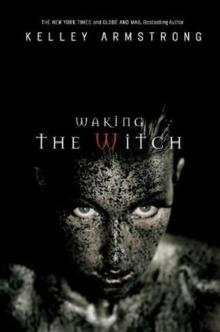 Waking the Witch woto-11
Waking the Witch woto-11